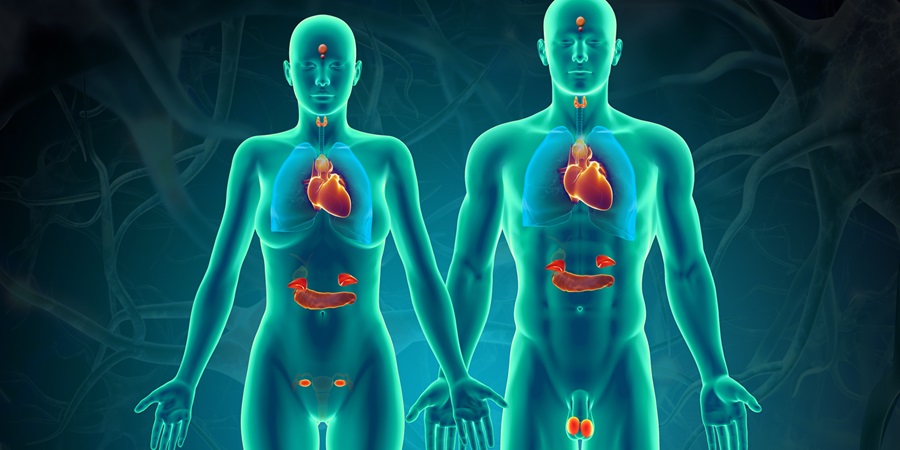BREAKING! COVID-19 Endocrine System: New Study Shows That SARS-CoV-2 Damages The Endocrine System!
Source: COVID-19 and the Endocrine System Jul 02, 2020 4 years, 9 months, 1 week, 2 days, 6 hours, 38 minutes ago
COVID-19 Endocrine System: It seems that the damage from the SARS-CoV-2 coronavirus is never ending. Starting out initially as a respiratory disease that causes damage to the lungs, studies progressed to show that it also affects the immunity system, the gastroenterological system, the clotting mechanisms, the neurological system, the heart and circulatory system, the reproductive system in males and now the endocrine system.

Individuals with endocrine disorders may see their condition worsen as a result of COVID-19, according to a new review published in the
Journal of the Endocrine Society.
https://academic.oup.com/jes/article/doi/10.1210/jendso/bvaa082/5863314
Dr Noel Pratheepan Somasundaram of the National Hospital of Sri Lanka in Colombo, Sri Lanka told Thailand Medical News, "We explored the previous SARS outbreak caused by the very similar virus SARS-CoV-1 to advise endocrinologists involved in the care of patients with COVID-19. The virus that causes COVID-19 ie SARS-CoV-2 binds to the ACE2 receptor, a protein which is expressed in many tissues. This allows the virus to enter endocrine cells and cause the mayhem associated with the disease."
The SARS-CoV-2 coronavirus can cause loss of smell and gain entry to the brain. In past coronavirus infections such as the SARS epidemic in 2003, many patients developed a post-viral syndrome with fatigue. This could in part be caused by adrenal insufficiency, a condition where the adrenal glands do not make enough cortisol, as a result of damage to the pituitary system. During the SARS epidemic, patients who developed adrenal insufficiency typically recovered within one year.
Dr Somasundaram said, "Testing for cortisol deficiency and treating patients with steroids may become a vital treatment strategy. Very recent studies have demonstrated lowered mortality in severely-ill patients with COVID-19 treated with the steroid dexamethasone."
SARS-Cov-2 also could lead to new cases of diabetes and worsening of existing diabetes. The SARS-CoV-2 virus attaches to ACE2, the main entry point into cells for coronavirus, and disrupts insulin production, causing high blood glucose levels in some patients. The authors highlight the need for strict glucose monitoring in patients with COVID-19 as a measure to maximize recovery.
Dr Somasundaram said, "Individuals with vitamin D deficiency may be more susceptible to coronavirus and supplementation could improve outcomes, though evidence on the subject is mixed."
Literally every organ or tissue associated with the endocrine system starting with the hypothalamus, the pituitary gland, the thyroid gland, the adrenal gland, the pancreas, the parathyroids and the gonads are all vulnerable to the SARS-CoV-2 coronavirus.
In summary, SARS-CoV-2 attaches to the ACE2 system in the pancreas causing perturbation of insulin production resulting in hyperglycemic emergencies. In patients with pre-existing endocrine disorders who develop COVID-19, several factors warrant management decisions. Hydrocortisone dose-adjustments are required in patients with adrenal insufficiency. Identification and management of Critical Illness Related Corticosteroid Insufficiency is c
rucial. Patients with Cushing’s syndrome may have poorer outcomes due to the associated immunodeficiency and coagulopathy. Vitamin D deficiency appears to be associated with increased susceptibility or severity to SARS-CoV-2 infection, and replacement may improve outcomes.
For more on
COVID-19 and the
Endocrine System, keep on logging to Thailand Medical News.
